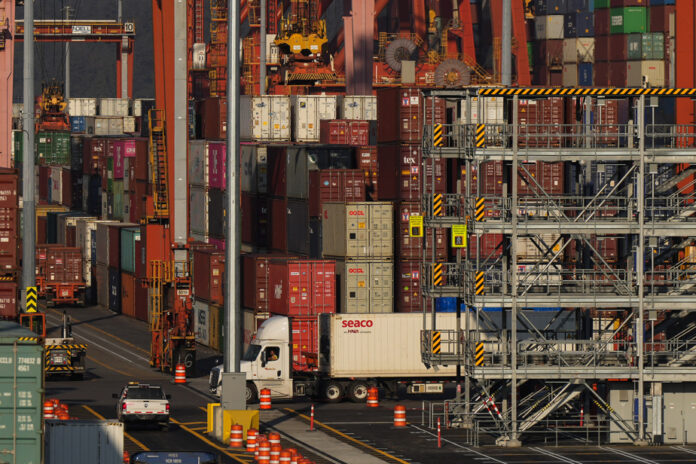(Montreal) Several west coast ports, including the country’s largest in Vancouver, have been shut down since Saturday morning due to a labor dispute that could disrupt global freight transport.
After months of fruitless negotiations, more than 7,000 terminal loaders and 49 employers in 30 ports went on strike.
Subcontracting, port automation and the cost of living are the main reasons behind the collective action taken by the International Union of Longshoremen and Warehousemen.
“We didn’t take this decision lightly, but we had to do it for the future of our workforce,” said Rob Ashton, president of the union’s Canadian branch.
However, he remains positive about the signing of a “collective agreement for the rights of the working class”, he added in a statement. Their collective agreement expired on March 31.
For its part, the Maritime Employers Association of British Columbia says it has “repeatedly tried to be flexible and to find a compromise on essential priorities”, without success.
“We appreciate the assistance provided by the federal mediators to the parties and we remain open to any solution that will help reach a balanced agreement,” they said in a statement.
On Friday, the association said a possible strike would not affect cruise ships docking in Vancouver, Prince Rupert and Vancouver Island.
Members of the Maritime Employers Association transport all types of goods to Canada and the United States in particular, from automobiles to coal, cereals and containers.
If it continues, this strike could thus have significant repercussions on the North American market, but also on the world.
More than 500 million Canadian dollars worth of goods transit daily through the ports concerned, indicates the association on its website, or 16% of the goods traded by Canada each year.
The Port of Vancouver alone trades approximately $305 billion worth of goods annually and contributes $11.9 billion to GDP.















